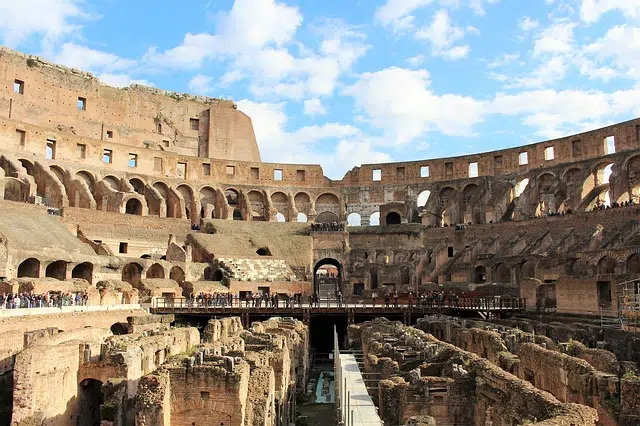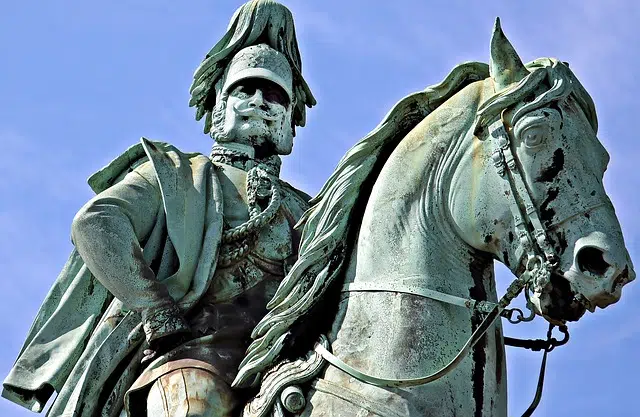
The Roman Empire had great importance in Antiquity .
An empire , from the Latin imperium , is a form of state organization in which authority rests with the figure of the emperor. In these States , therefore, the emperor holds power and is the monarch.
The concept is also used to name the time period in which the government of one of these leaders extends, the era in which a nation had emperors and the set of territories ruled by an emperor.
An empire, in general, is constituted by the power of a State that dominates the territories of different nations. For example: The German Empire or Second Reich existed between 1871 and 1918 and had under its control various kingdoms, duchies and principalities, such as Prussia , Bavaria , Baden , Bremen and Hamburg , among others.
The Russian Empire
One of the great empires in the history of humanity is the Russian Empire, which ruled between 1721 and 1917 and occupied not only important areas of the European Continent, but also parts of Asia and North America. This political body called itself Imperial Russia; It was started by Pedro I and culminated with the Revolution of 1917.
Peter I took over as tsar after overthrowing his sister Sofia and, as he had extensive military knowledge, he undertook a conquest that would be remembered forever; He managed to dominate a territory that covered 22,900,000 km² and included people from more than a hundred different ethnic groups. It was home to almost all of the Baltic countries, the Caucasus and much of Central Asia, plus some regions of Alaska.
Peter I was the creator of Russia's naval forces and reorganized the army based on the European system , paying soldiers as if it were any job. All the changes that the Empire was developing responded to a single ideal, an absolutist model where the only existing authority was himself, the tsar . His objective was to create an Empire that had modern technology and was based on innovative ideas. He also made great contributions in art and education and encouraged the people to adopt Western customs and ideas; This, although it brought many advantages, also widened the gap between the nobility and the people.
In 1917, in the middle of the First World War , groups of Marxists and anti-Tsarists rose up against the Tsar, who was then Alexander II; They managed to overthrow him and the Russian Republic was declared. The causes of this uprising were many, but fundamentally it was due to the great poverty that was beginning to plague one of the countries that had once had one of the highest rates of economic growth in all of Europe. Furthermore, Russia was in crisis due to the great discontent that reigned among the people with respect to the tsarist government.
The Russian Empire was one of the largest in history, along with the British and Spanish; In any case, it is important to object that, although the Roman was much smaller, its cultural influence on the dominated regions has positioned it among one of the most remembered in all of history.

The top leader of an empire is known as an emperor.
Power and the act of ruling
There are times when the term empire is used to name a power (whether military or economic ), although its leader does not have the title or powers of emperor. In recent years, many sociologists and political scientists have described the United States as an empire due to its war-mongering policy (which led to the invasion of territories such as Afghanistan and Iraq ) and the enormous pressure it exerts from its economic dominance.
The concept also refers to the action or result of ruling (giving orders): "I want to restore the rule of law in this nation ," "The rule of corruption and crime has made society move away from class." policy" .
Finally, it is worth mentioning that the term imperialism refers to the behavior and tendency of a State that wants to place itself above others. This current is linked to the desire for expansion and annexation of other lands .
